Nonprofit/Advocate Publications
Background information produced by and for non-profit organizations, policymakers and advocates. When our partners release new reports and publications, we share them here.
New York City Coalition Against Hunger
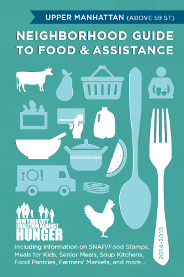
Neighborhood guide for food assistance
This guide was produced by the NYC Coalition Against Hunger to connect those in need of with free community resources. This Guide was made possible by funding from the New York City Council, through a grant administered by the New York City Human Resources Administration, the United Way of New York City, the Walmart Foundation,and the New York State Office of Child and Family Services.
[wpdm_package id=’5627′]
The National Academies Press
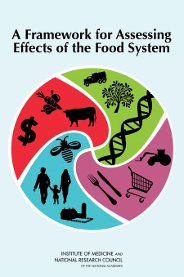 Framework for Assessing Effects of the Food System (FAEFS)
Framework for Assessing Effects of the Food System (FAEFS)
FAEFS develops an analytical framework for assessing effects associated with the ways in which food is grown, processed, distributed, marketed, retailed, and consumed in the United States. The framework will allow users to recognize effects across the full food system, consider all domains and dimensions of effects, account for systems dynamics and complexities, and choose appropriate methods for analysis. This report provides example applications of the framework based on complex questions that are currently under debate: consumption of a healthy and safe diet, food security, animal welfare, and preserving the environment and its resources.
Fresh Food Retail Summit
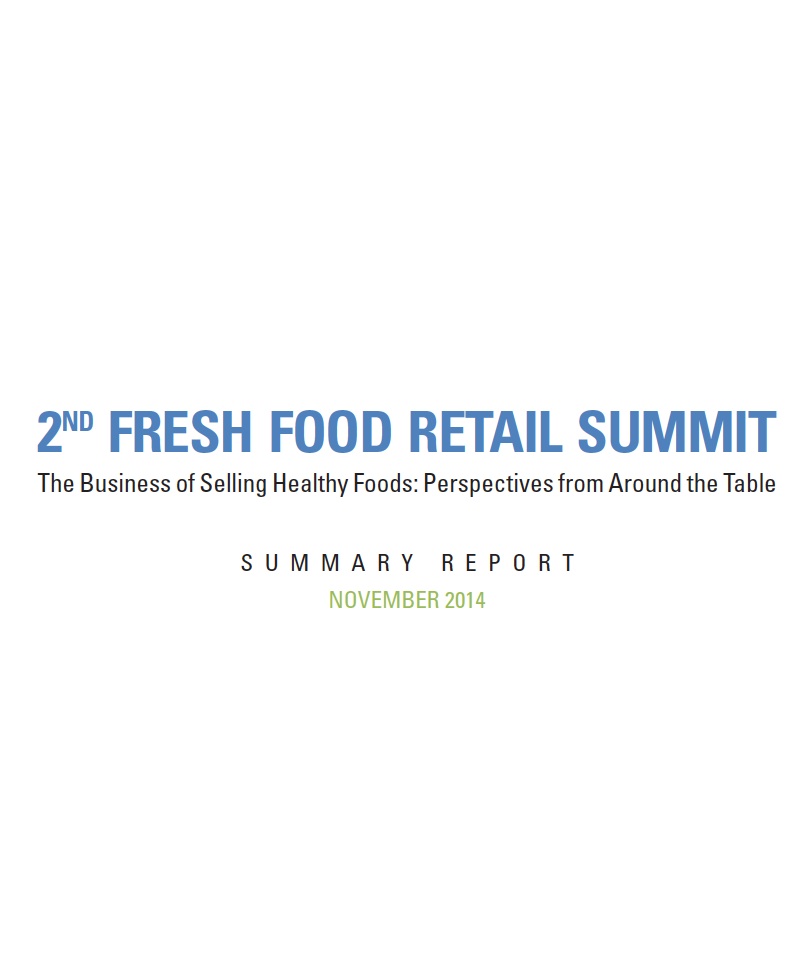
Summary Report February 2015
The second New York City Fresh Food Retail Summit was hosted and organized by the Healthy Food Retail Networking Group, where Center Co-Director Janet Poppendieck gave opening remarks on November 14, 2014. Whereas the initial 2013 summit focused on networking and gathering, the 2014 summit focused on the business perspective of selling healthy foods and included representatives from grocery distribution, bodegas, supermarkets, and the City Council.
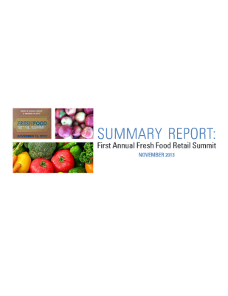
Summary Report March 2014
The Fresh Food Retail Summit, hosted by the Food Policy Center at the CUNY School of Public Health on November 15, 2013, brought together more than 100 people from organizations actively working in food retail across NYC to participate in a daylong event of interactive learning through insightful presentations, a panel discussion, a robust poster session, and afternoon break-out session discussions. Attendees left the Summit armed with new tools, resources, and fresh lenses with which to approach the current and future landscape of fresh food retail in New York City.
Last Food Mile
The Last Food Mile Conference was organized to bring multidisciplinary thought leaders together in an intensive, two-day format to discuss the amount and causes of food wastage at each stage , the barriers to implementing change, the multiple opportunities in excess food, lessons from current efforts to reduce wastage and how to leverage them, and how to lead behavior change for long – term solutions. Read More>>>
, the barriers to implementing change, the multiple opportunities in excess food, lessons from current efforts to reduce wastage and how to leverage them, and how to lead behavior change for long – term solutions. Read More>>>
Annual Hunger Survey
 The survey report – entitled “The Unkindest Cuts: Federal SNAP Cuts Overwhelm Feeding Charities as NYC Hunger Remains High Despite Wall Street Boom” demonstrates how the recent SNAP cuts, nearly $14 billion over the last year, coupled with a difficult economic recovery for low-income New Yorkers, has made it an extremely difficult year for hungry New Yorkers. Read more>>>
The survey report – entitled “The Unkindest Cuts: Federal SNAP Cuts Overwhelm Feeding Charities as NYC Hunger Remains High Despite Wall Street Boom” demonstrates how the recent SNAP cuts, nearly $14 billion over the last year, coupled with a difficult economic recovery for low-income New Yorkers, has made it an extremely difficult year for hungry New Yorkers. Read more>>>
Growing Food Connections Policy Database
The Growing Food Connections Policy Database is a searchable collection of local public policies that explicitly  support community food systems. This database provides policymakers, government staff, and others interested in food policy with concrete examples of local public policies that have been adopted to address a range of food systems issues: rural and urban food production, farmland protection, transfer of development rights, food aggregation and distribution infrastructure, local food purchasing and procurement, healthy food access, food policy councils, food policy coordination, food system metrics, tax reductions and exemptions for food infrastructure, and much more. Read more>>>
support community food systems. This database provides policymakers, government staff, and others interested in food policy with concrete examples of local public policies that have been adopted to address a range of food systems issues: rural and urban food production, farmland protection, transfer of development rights, food aggregation and distribution infrastructure, local food purchasing and procurement, healthy food access, food policy councils, food policy coordination, food system metrics, tax reductions and exemptions for food infrastructure, and much more. Read more>>>
Food Policy Action
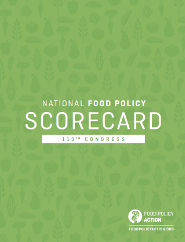 National Food Policy Scorecard 2014
National Food Policy Scorecard 2014
The National Food Policy Scorecard is your go-to source for information about the most important food policy legislation considered by the House and Senate each year. The Scorecard reflects the consensus of top food policy experts who select the key food policy votes, bills and amendments each year. The scored food policy issues include domestic and international hunger, food safety, food access, farm subsidies, animal welfare, food and farm labor, nutrition, food additives, food transparency, local and regional food production, sustainable fisheries, organic farming and the effects of food production on the environment.
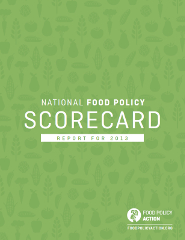 National Food Policy Scorecard 2013
National Food Policy Scorecard 2013
The scored food policy issues include domestic and international hunger, food safety, food access, farm subsidies, animal welfare, food and farm labor, nutrition, food additives, food transparency, local and regional food production, sustainable fisheries, organic farming and the effects of food production on the environment. The National Food Policy Scorecard lets you identify which legislators are working for sensible food policies.
[download id=”5151″]
School of International and Public Affairs (SIPA)
This case study was prepared with the assistance of student researchers (from SIPA, Mailman, Teachers College and Columbia College) Farah Ahmad, Aliya Ali, Jordan Brensinger, Catherine Dodge, Jesper Frant, Aaron Freedman, Joyeta Goswami, Sonya Rubin, Kalman Victor, Elizabeth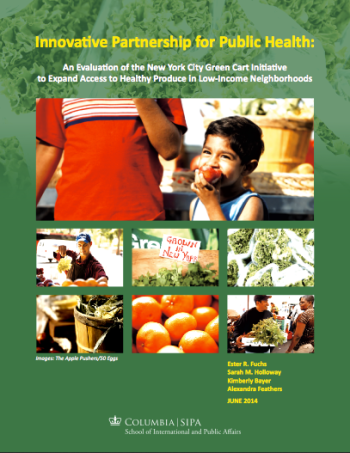 Wyner,Stephanie Yagos and consultant Bonnie Rosenberg. Special thanks to Professor Robert Shapiro and Kevin Gully. Innovative Partnership for Public Health: An Evaluation of the New York City Green Cart Initiative to Expand Access to Healthy Produce in Low-Income Neighborhoods Columbia University, 2014.
Wyner,Stephanie Yagos and consultant Bonnie Rosenberg. Special thanks to Professor Robert Shapiro and Kevin Gully. Innovative Partnership for Public Health: An Evaluation of the New York City Green Cart Initiative to Expand Access to Healthy Produce in Low-Income Neighborhoods Columbia University, 2014.
Brandworkers
 Brandworkers is a non-profit organization bringing local food production workers together for good jobs and a sustainable food system. Feeding New York: Challenges and Opportunities for Workers in New York City’s Food Manufacturing Industry.
Brandworkers is a non-profit organization bringing local food production workers together for good jobs and a sustainable food system. Feeding New York: Challenges and Opportunities for Workers in New York City’s Food Manufacturing Industry.
The Meal Gap
The Meal Gap represents the meals missing from the homes of families and individuals struggling with food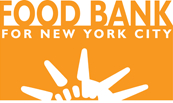 insecurity — that is, when household food budgets fall too short to secure adequate, nutritious food year-round. Factors like poverty and local food costs determine how big a city’s meal gap is. Because the meal gap can be mapped, we can see where hunger lives. The map below shows New York City is missing 250 million meals. Read more>>>
insecurity — that is, when household food budgets fall too short to secure adequate, nutritious food year-round. Factors like poverty and local food costs determine how big a city’s meal gap is. Because the meal gap can be mapped, we can see where hunger lives. The map below shows New York City is missing 250 million meals. Read more>>>
Urban Institute
 To understand innovation in food policy under the Bloomberg administration, the Urban Institute conducted nearly a dozen interviews via telephone with key informants from the city government, universities, advocacy groups, and nonprofits. All informants were intimately connected to food policy, either directly through the development of programs under the Bloomberg administration, as advocates for particular aspects of food policy, or as researchers and evaluators of food policy programs.
To understand innovation in food policy under the Bloomberg administration, the Urban Institute conducted nearly a dozen interviews via telephone with key informants from the city government, universities, advocacy groups, and nonprofits. All informants were intimately connected to food policy, either directly through the development of programs under the Bloomberg administration, as advocates for particular aspects of food policy, or as researchers and evaluators of food policy programs.
[download id=”4598″]
The New York Academy of Medicine
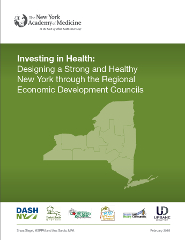 Investing in Health: Designing a Strong and Healthy New York through the Regional Economic Development Councils
Investing in Health: Designing a Strong and Healthy New York through the Regional Economic Development Councils
This report was developed to show that there are also opportunities to simultaneously enhance public health in some of the projects funded and within the jobs created. To develop this report, the 725 projects awarded in 2012 were reviewed and compared against evidence-based and recommended interventions for increasing access to healthy foods and physical activity in communities. The review identified 45 potentially health-promoting projects, with 21 projects supporting healthy eating and 24 projects supporting physical activity.
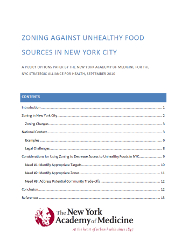 Zoning Against Unhealthy Food Sources in New York City
Zoning Against Unhealthy Food Sources in New York City
This paper was developed to help inform the strategy of anti‐obesity advocates interested in pursuing zoning changes to limit or ban fast food restaurants. An interim step may be to simply create the opportunity for such interventions. Advocates may want to aim for obtaining authorization for community boards to impose restrictions on certain types of restaurants if they so desire. This direction would offer the opportunity to create local zoning strategies that best meet the diverse retail conditions across the five boroughs.
Food Policy Council Resources
Food Policy Councils: A Memo, by Janet Poppendieck, Co-Director, NYC Food Policy Center at Hunter College Hunger Action Network Report on Food Policy Councils (includes NYC Councilman Brad Lander’s December 2013 proposed legislation). Mark Winne Food Policy Council Resources

